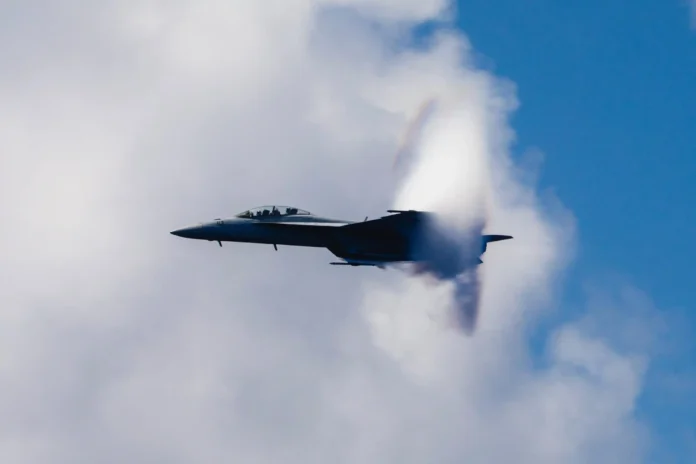Israeli warplanes broke the sound barrier three times over Beirut on Tuesday, August 6, creating sonic booms that were the loudest heard in the Lebanese capital in years.
The high-speed passes occurred less than half an hour before a scheduled speech by Sayyed Hassan Nasrallah, the head of the Iran-backed militant group Hezbollah.
Eyewitnesses reported that the Israeli jets flew low over the city, visible to the naked eye, adding to the tension that has been escalating in the region.
The sonic booms were heard just as Hezbollah was preparing for Nasrallah’s address, which was set to commemorate one week since the killing of the group’s top military commander, Fuad Shukr, in an Israeli airstrike on Beirut’s southern suburbs.
The incident in Beirut coincided with a series of attacks by Hezbollah on northern Israel. The militant group launched drones and rockets targeting two military sites near Acre and an Israeli military vehicle.
The Israeli military intercepted one of the hostile drones, and medical officials reported that seven individuals were hospitalized near Nahariya, with one in critical condition.
Hezbollah’s retaliatory actions come in the wake of the recent deaths of Shukr and Hamas chief Ismail Haniyeh.
Haniyeh’s assassination, which occurred in Tehran just hours after Shukr’s killing, has been attributed to Israel, although the Israeli government has neither confirmed nor denied responsibility. The twin attacks have heightened tensions across the Middle East, with Iran also threatening a painful response.
The ongoing conflict between Hezbollah and Israel has seen a series of tit-for-tat exchanges over the past ten months, coinciding with the broader Gaza war. While these clashes have predominantly been confined to the border area, the recent escalation marks a significant increase in hostilities.
In his upcoming speech, Nasrallah is expected to address the ongoing retaliation and the strategic implications of Shukr’s death. Despite his vow for revenge, Nasrallah has emphasized that the response will be carefully calculated.
The situation remains fluid, with both sides preparing for further potential escalations. The international community watches closely as the conflict threatens to expand, with the region’s stability hanging in the balance.

